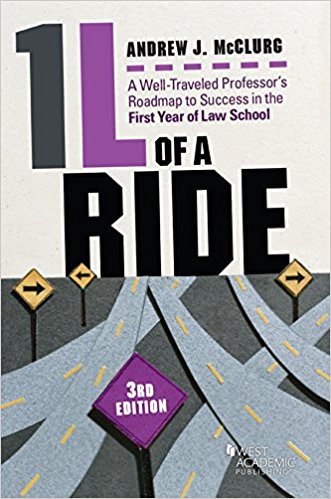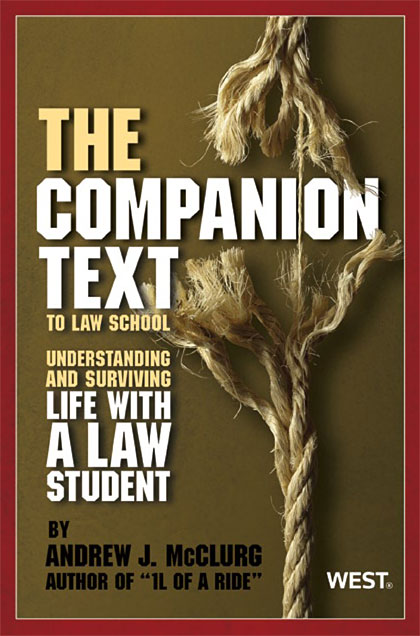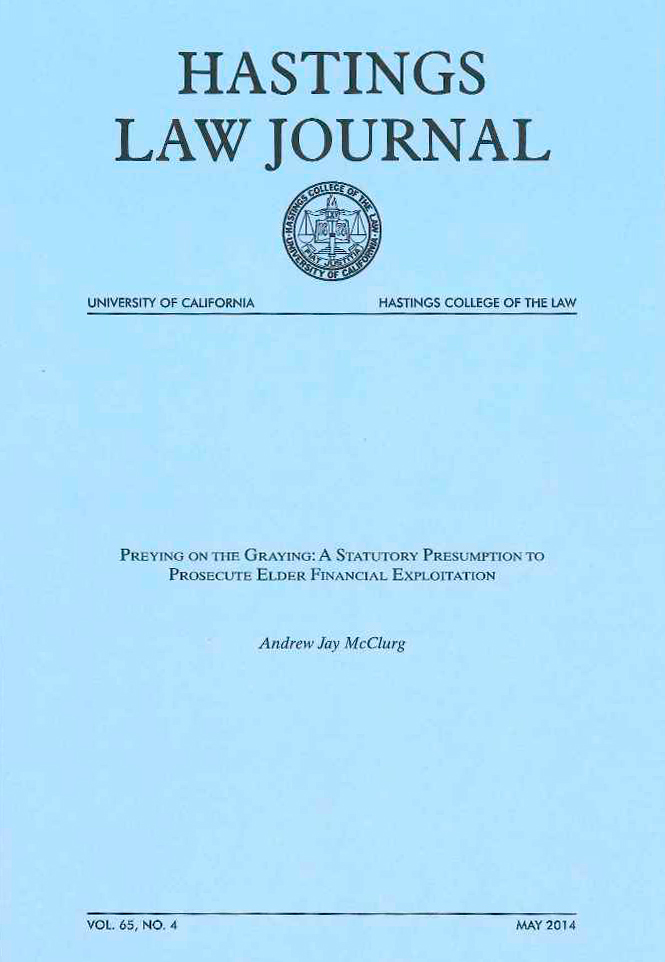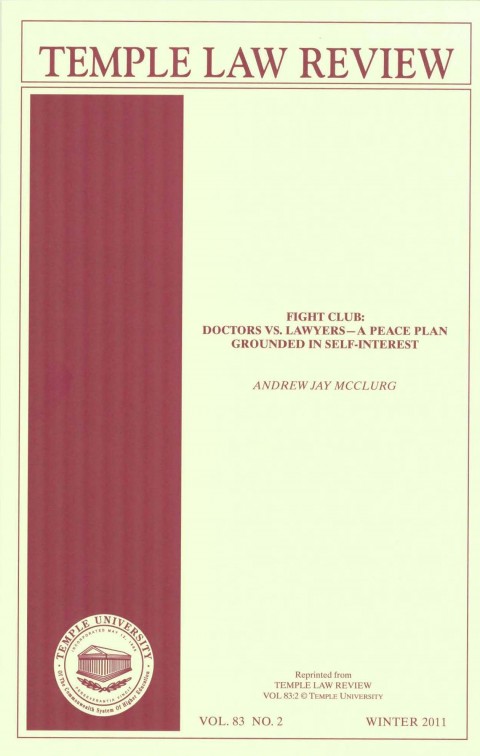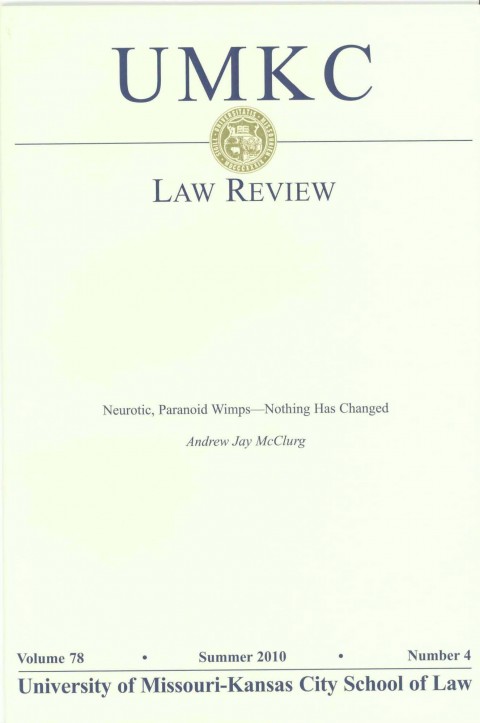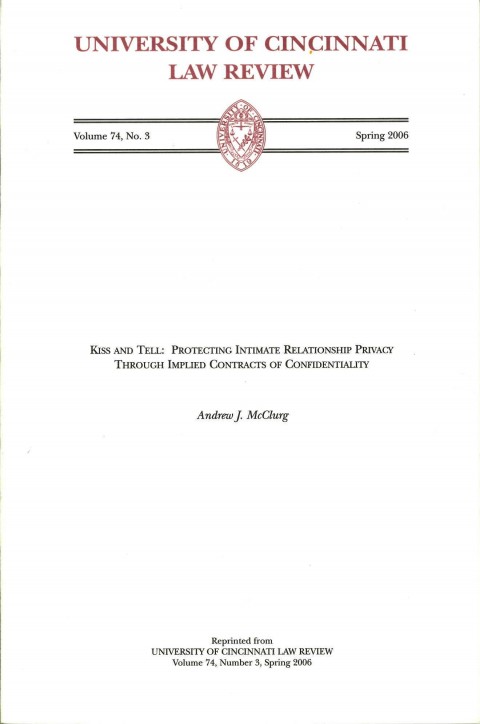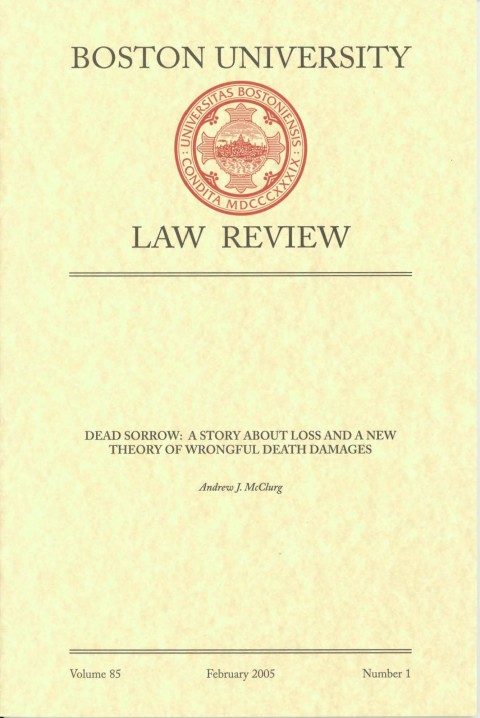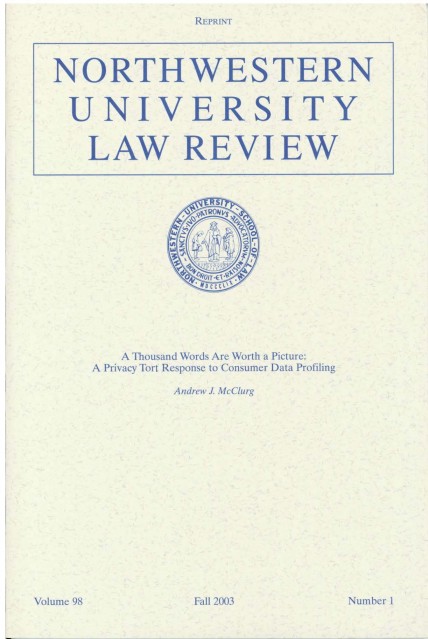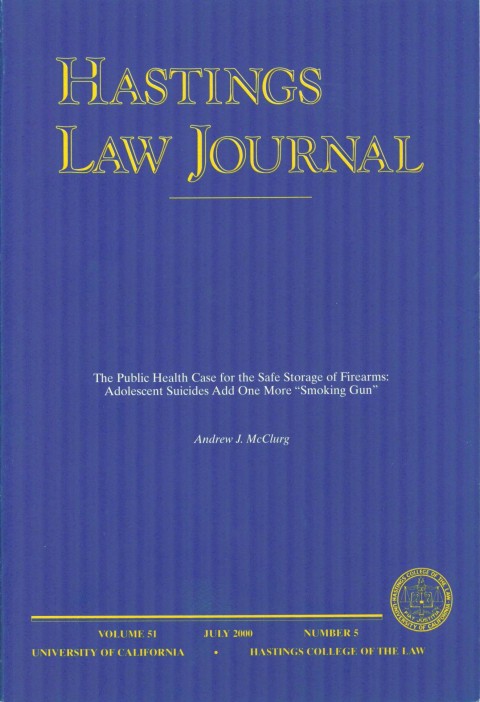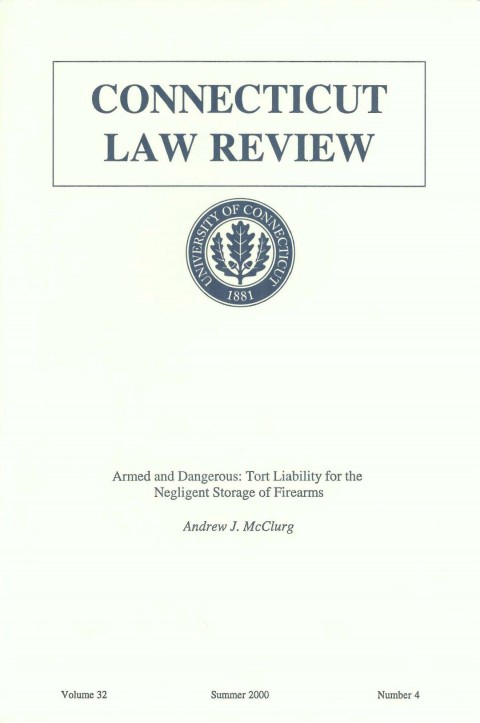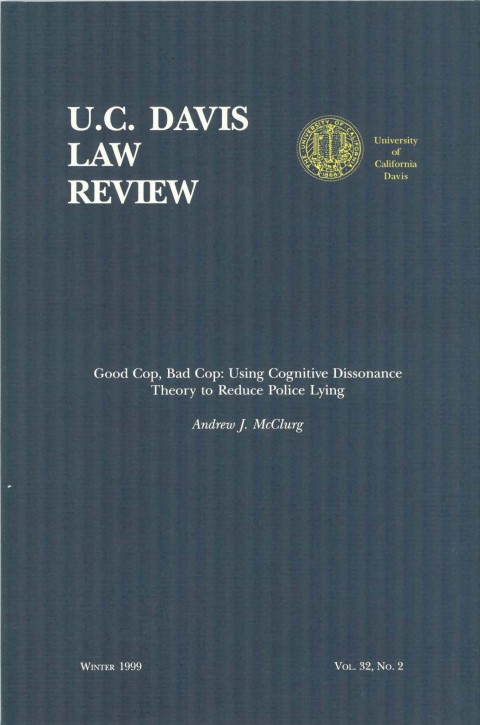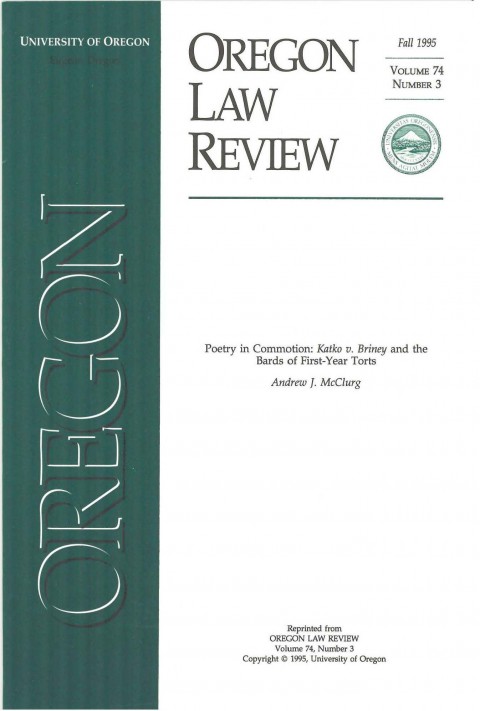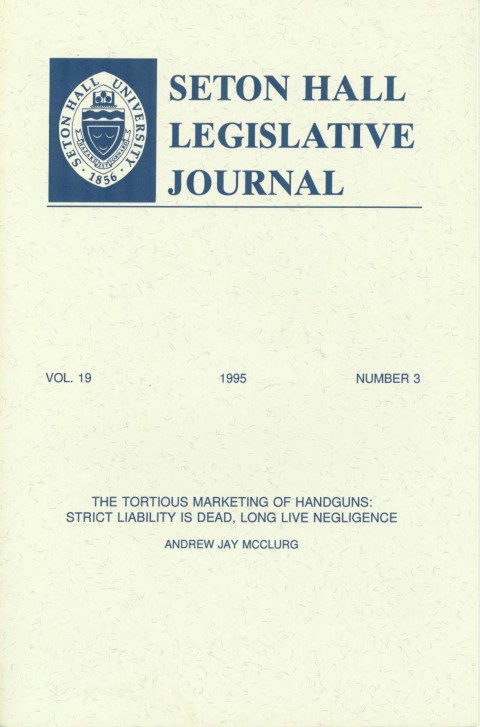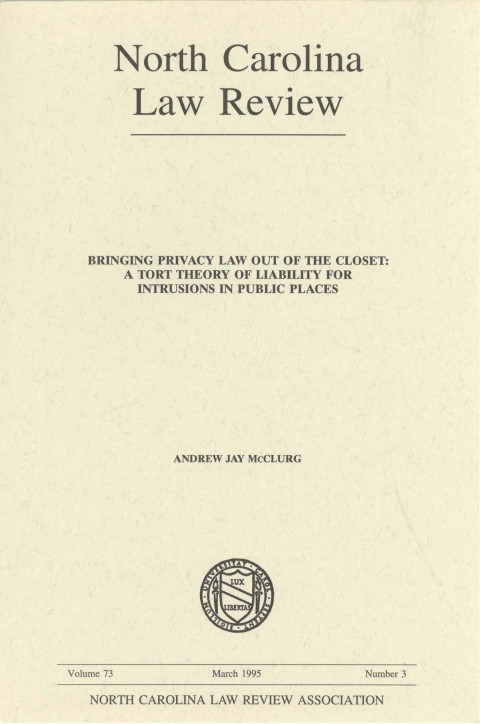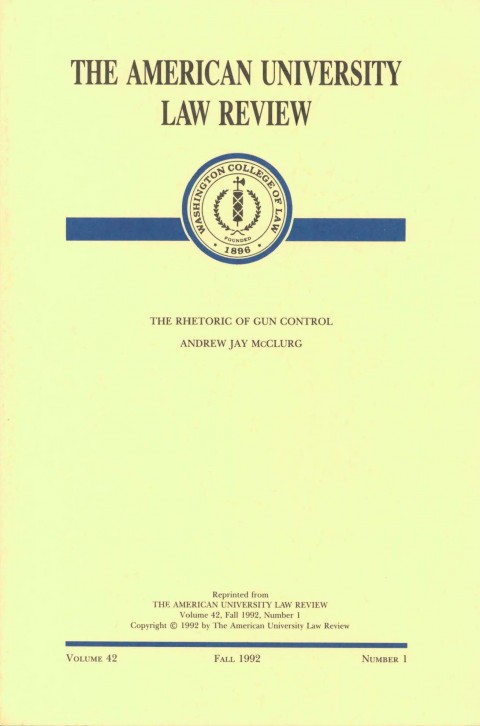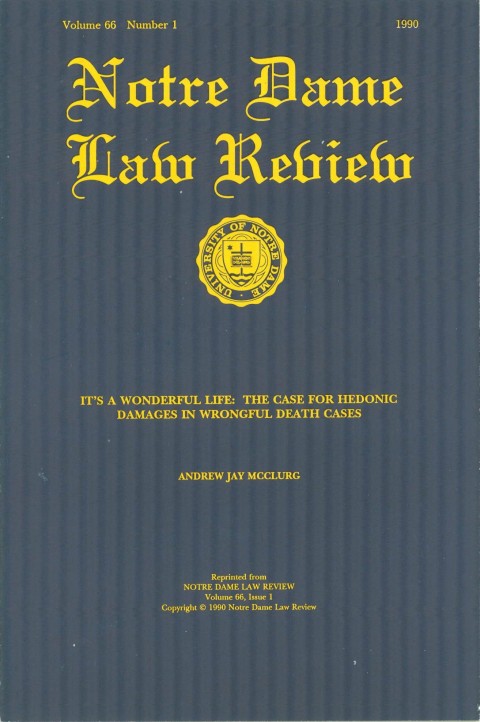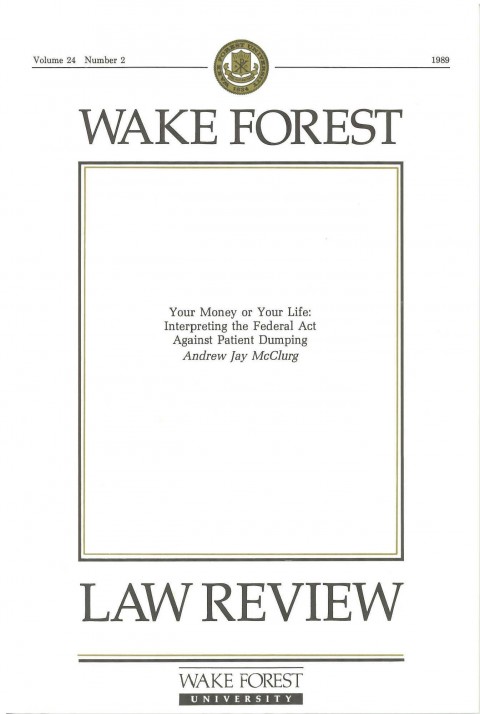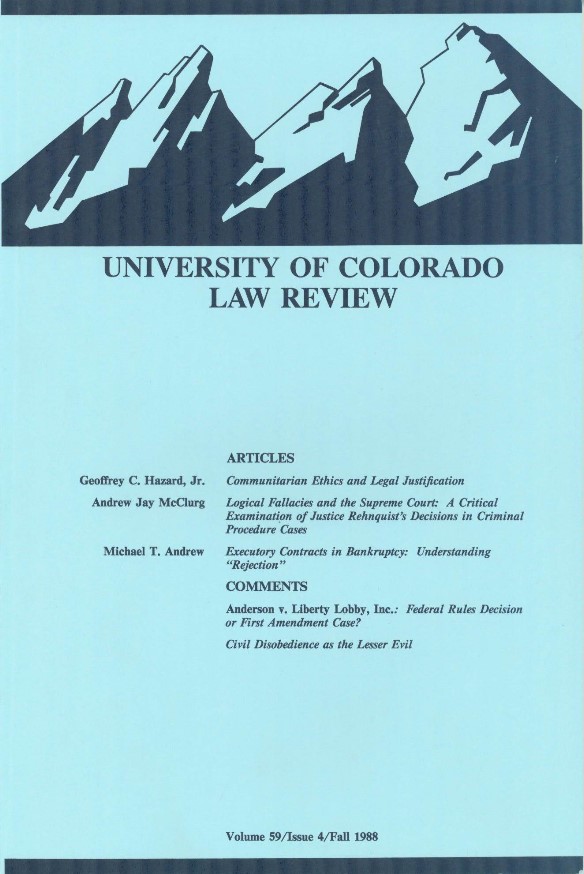February 11th, 2012 –Law School Story from Tony Arseneault, Université Laval’s Faculty of Law (Quebec, Canada), Date of event: 2011
In 2011, I was at my first session at Université Laval’s Faculty of Law, when I had the pleasure to meet the teacher that changed my perception of constitutional law forever: Patrick Taillon.
I come from the province of Quebec, Canada. As you may or may not know, Quebec is a civil law (French law) province when it comes to private law, and common law (English law) when it comes to public law. Essentially, all subjects like Contracts, Civil Liability or Property Law are in the realm of civil law, with everything that entails.
Since these classes are based around the mastery of the Civil Code, there is really no place for the Socratic method. Classes are taught for the most part with long lectures and minimal student intervention. This way of teaching law, common in purely civilist countries, bleeds over to the teaching of common law subjects. That means there is also no Socratic method in our common law classes, like Constitutional Law.
Thus, since teachers can’t entertain themselves at our expense through Socratic dialogues, and since teaching law in the civilist manner is, frankly, pretty boring, some of them choose to go the other way around: they entertain us.
Mr. Taillon has a pretty … unique way to do that for such a learned legal scholar. He laced his classes with sexual references to drive home points in a memorable way.
Two examples:
—Trying to teach us about the separation of powers (which is much less defined in Canada than it is in the United States) and checks and balances, his explanation went like this: “Essentially, the three branches are brothers and sisters and they have an incestuous triangle going on. They screw each other all the time.”
—Teaching us about article 56.1 of the Canada Elections Act, a disposition that removes the power from the Governor General to choose the date of the elections while saying that nothing in the article removes power from the GG: “This is like a rapist yelling ‘THIS IS NOT A RAPE’ while he’s doing it.”
All the while, he kept telling us what a “crappy country” we live in, because a huge part of the Constitution is unwritten and how our constitutional system is “done very badly” and “makes no sense.”
To this day, I only have to remember the sexual innuendo of the class to access everything he taught in class, filed neatly in a mental drawer. His enthusiasm for the subject is contagious. He always gave us a ton of laughs in a subject that really isn’t straightforward. He made me decide to focus more on Constitutional Law in the future.
October 30th, 2011 –From Ross C. Hart, Law school: University of Virginia School of Law, Date of event: 1974
In 1974, I was a first year student at the University of Virginia School of Law. I was taking Family Law (now more politically correctly called “Domestic Relations”) with Prof. Walter Wadlington. Class was the first class of the day at 9:00 am.
One Monday morning, at about 9:05, we were discussing the requirements for a valid marriage. The professor said “Consummation of a marriage is actually not part of the requirements for a valid marriage. Frankly, and I hate to say this so early on a Monday morning, ‘consummation of marriage’ is not a legal term, it is a, well, lay term ….”
October 30th, 2011 –From Edward M. ‘Ted’ McClure, Campbell University School of Law, Date of event: Spring 1980
It was half-way through our second semester, and Professor (later Dean) Pat Hetrick was running us through some truly obtuse Property II issue. He is a wonderfully entertaining teacher, but it was after lunch and after mid-terms and we were all brain-dead.
He fires off a question and looks for a volunteer to answer. Nothing. Silence. A hundred blank expressions. He asks again, with no better result. After a moment, he dashes out from behind the podium, sits in an empty seat in the first row, and starts jumping up and down yelling “I know, teacher! I know, Professor Hetrick!”. After about 20 seconds of this, he dashes back to the podium, looks over at the (now empty) seat, and says, “I think I’ll call on that smart kid in the first row.” Then he dashes back to the seat, sits down, stands up, and starts “reciting” the answer, while we laugh madly.
October 30th, 2011 –From James Un, University of Kansas School of Law, Date of event: 2006
I attend the University of Kansas School of Law. Second-year Constitutional Law was taught by a professor known for asking endless series of hypothetical questions about cases. One day, he was doing lectures on obscenity. He apparently enjoyed doing these lectures because it gave him an opportunity to say certain four-letter words.
The unfortunate victim of his “rolling boulder” method of questioning on this particular day was a person who everyone except the professor knew was devoutly religious.
On a screen, the prof had projected a link to 2LiveCrew lyrics, as well as a list of songs from one of their albums.
So he asked the deeply religious student, “So what do you think about this song title? Is this obscenity given the test in Miller?” And the student replied, Well, that depends. In my opinion, yes.”
The professor continued, “I’m going to read some lyrics from the song.” And he began to spout out, much to the student’s chagrin and embarrassment, lyrics laced with sexual references and more four-letter words. That was amusing in of itself, seeing a balding white guy in a black turtleneck reciting 2LiveCrew lyrics.
Let’s just say that the student was not enjoying this line of questioning, especially when it continued in this vein for about ten minutes.
The class was cracking up and laughing and the professor was not exactly sure why. Why was it so funny? I guess you could say that it was a little bit of everything. A white professor rapping offensive lyrics to a prim and proper student who was wishing it was all over.
October 30th, 2011 –From Troy Pickard, University of San Diego School of Law, Date of event: Fall 2004
In our first semester Criminal Law course, we were discussing Regina v. Dudley, the infamous case where three men adrift on a lifeboat cannibalized a 17-year-old cabin boy. My classmates and I still talk about a very simple, yet incredibly profound statement made by our Criminal Law professor, Kevin Cole, that forever cleared up the meaning for us of the term “prima facie”:
“Prima facie,” Professor Cole said, “it’s bad to eat a person while they’re still alive.”
With such pithy insight, it’s no wonder Professor Cole is now USD’s law school dean.
October 30th, 2011 –From Steve Cumbie, Southern Methodist University School of Law, Date of event: Fall 2003
As those who are familiar with his casebook on bankruptcy law already know, Professor David Epstein is always good for a few laughs. Two years ago in my first-year Property class, we were discussing the dreaded Rule Against Perpetuities.
Professor Epstein asked for a volunteer to determine whether a particular conveyance was valid. “Anyone? Anyone?” he asked a room full of people desperately trying to avoid eye contact.
After several seconds of very awkward silence in which it became quite obvious that no one had a clue, someone’s cell phone rang. Without missing a beat, Professor Epstein quipped, “Didn’t realize this was a call-in show. Maybe they know the answer. Put it on speaker.”
October 30th, 2011 –From Jody R. Nathan, University of Oklahoma College of Law, Date of event: 1982.
I started law school at the University of Oklahoma in 1982. One of the crusty old law professors was George Frazier; nicknamed “the Tiger.” He taught civil procedure (and was instrumental in getting Oklahoma’s new pleading code drafted along the lines of the Federal Rules of Civil Procedure) and Remedies. He was a great guy with a deep gravelly voice. In Remedies one day, the subject of loss of consortium came up. One of my classmates asked him “How do you figure loss of consortium damages? Is it the cost of comparable services?” He laughed and said, “Well, (pause) yes, (pause) I guess that’s one way you could figure it.” (McClurg note: Traditionally, a primary component of loss of consortium damages was loss of a spouse’s sexual “services.”)
In the first week of Civil Procedure, demurrers were being discussed. I asked a question and mispronounced demurrer as demure. He responded, “Well, (pause) Ms. Nathan (pause) demure is, (pause) well, what young ladies OUGHT to be.” Needless to say, I never mispronounced the word again.
My Torts professor, Peter Kutner, also had a sly sense of humor. One day, he was explaining the idea that the law does not provide remedies for slights — and gave us a Latin phrase de minimus non curat lex. To help us remember it, he also provided a limerick:
There once was a man named Rex
Who had a very small sex
He kept his composure
During indecent exposure
De minimus non curat lex.
I have remembered both the term and the limerick ever since.
October 30th, 2011 –From Andy Martinez, University of Wisconsin Law School, Date of event: Fall 2003
During a lecture in my first year Civil Procedure class at the University of Wisconsin, my professor, who had a reputation for being slightly wacky, received a call on her cell phone. She stopped mid-sentence, looked through her purse, pulled out her cell phone, and answered the call and then hung up. She apologized, saying she didn’t know how to turn the phone from ring to vibrate.
Later in the semester, she was giving another lecture, and the cell phone goes off again. She took it out, and looked at it. She said she had to take the call, and everyone in the lecture hall looked at each other, thinking “Is she serious?” So the professor goes out of the room and starts talking.
What she apparently forgot, or didn’t care about, is that she was wearing a wireless microphone so that she could be heard in the lecture hall. So everyone in the class is listening in on her side of the conversation. It turns out that the phone call that was so important she had to take it during class wasn’t about some important case or anything like that, but about her dog’s visit to a vet! She came back, and the class sat, stunned.
October 30th, 2011 –From Name withheld upon request, Michigan State University College of Law, Date of events: Fall 2002
Here are two stories about our Contracts professor. The first situation was in Fall 2002, and the professor was talking about offer and acceptance. He used the example of college house painters who knock on your door and ask if they can paint your house. The professor gave several examples of what your response would be if it were your house and what that response constitutes.
For example, if the house painters say they’ll paint your house for $200, and you say, “OK, paint the house,” that constitutes an offer and acceptance. If the house painters say they’ll paint your house for $200, and you say “How about $150?”, that constitutes a offer and counteroffer.
He was using this quiz method on a girl in my class and when he got to the third example, the professor said, “The house painters come to your house and say they’ll paint it for $200. You say ‘Screw you!’ What does this constitute?” The girl said, “counteroffer”, and the class broke into laughter. The professor just stopped until the laughing subsided and while he laughed a little himself. He said that he wasn’t going to call on her for the rest of the semester. I’m not sure he followed through with that offer, though.
The second situation was in the same class with the same professor. Throughout the year, the professor liked to use a “panel” where three or so students would be called on for the entire class. There were a few students who he later put onto “permanent panel” if they weren’t prepared.
On this day, he was explaining how the system would work, and a kid walked in late to our lecture hall. The way the hall is designed is there are two doors that separate the middle of the room with a walkway –it’s stadium seating. The kid walked in late through one of the doors, and the professor said, “Well, it looks like you’ll be on the panel today.” The kid just shook his head and walked right through the other door.
The class started applauding, and the professor asked what his name was. No one told him. The professor just shook his head and continued with class.
October 30th, 2011 –From John Schrier, University of Maryland School of Law, Date of event: 1982
I’m not sure if its in the realm of “you had to be there,” but here’s a story from Advanced Constitutional Law, taught by “Wild” Bill Reynolds, author of a Nutshell book. This was my third course with him, in my last year and last day of law school back in 1982. Wild Bill had long been known to sketch a picture of a rabbit in a hat whenever a student brought an argument from out of left field.
I’d often reminded him that I hadn’t yet pulled a rabbit out of my hat. Unbeknownst to Wild Bill, I’d been working my way through college and law school as a magician. So on the last day of school, I made sure to bring a point from left field. He laughed, sketched the hat and rabbit, and pointed out that I’d really pulled a rabbit out of that one.
I smiled, removed my cap, and produced therefrom “Buck-Buck,” the baby white rabbit I’d been using in some magic shows.
October 30th, 2011 –From Susan M. Harrelson, UNLV Law School, Date of event: Spring 1999.
Professor Joe Thome taught Contracts II to the charter class at the William S. Boyd School of Law, UNLV, in Spring 1999. We went to school in the former Paradise Elementary School, where the classrooms had the most horrible acoustics in history. One night, Professor Thome put down his microphone to take a drink of water, and apparently forgot to take it back up. He walked around speaking into that water bottle for a good five minutes, his lecture completely inaudible, before he needed another drink. When he saw the microphone sitting on the table where his water should have been, he finally realized his mistake.
October 30th, 2011 –From Kelly McQueen, University of Arkansas School of Law at Little Rock, Date of event: 1994
While quietly daydreaming in Land Use, a small upper-level course taught by the venerable Robert Wright, author of not only our textbook but also the Nutshell on Land Use Planning, I was surreptitiously passed a small folded note by one of my classmates. He was looking intently at me. He appeared to be choking. Perplexed, I carefully opened the note in my lap, not wanting to attract attention, reading the words “check out Professor Wright”.
So I did – obviously for the first time since I’d sat down for class –for he had a long piece of toilet paper tucked into his suit pants. It took real force of will to keep quiet, watching Professor Wright walk back and forth at the front of the class, lecturing in solemn tones on serious topics, with nary a clue that a full two feet of white tp followed in wake. It quickly became apparent that it was easier to stifle our laughter than it was to get someone to tell him.
Respected, aged, and in no small measure intimidating, he was just not the kind of guy one wanted to tell that he had brought something back from the john with him. Ultimately our training to be tough, fearless and hardened lawyers failed, and we did nothing. He went the whole class that way – finally exiting the class into the hall full of people.
Maybe one of them would tell him.
October 30th, 2011 –From Cullen McVoy, Hastings College of Law, Date of event: 1969
In 1969, my first year at Hastings College of the Law in San Francisco, I had the privilege of studying torts under the renowned William Prosser, known as the “King of Torts.” He was getting on in years, and could be seen popping his nitro-glycerine heart medication before class. But he got himself to work every day, driving a bright red Mercedes sedan across the Bay Bridge, commenting that the risks involved in that trip exceeded most of those he discussed in class. He was a great teacher–vital and animated. You could feel his deep love of the law, and life-long commitment to the development of its principles.
[McClurg note: For laypersons, Prosser, who died in 1972, was the main author of the most widely used Torts casebook in law schools.]
Prosser taught that tort principles had to be carefully crafted to balance two objectives: They had to be broad enough to compensate the deserving, but narrow enough to avoid a “flood of litigation.” He often spoke of this “flood of litigation” in dark tones that made it sound like the end of the world as we know it.
Hastings followed the rule that in the first year they scare you to death, the second year they work you to death, and the third year they bore you to death. This being my first year, I tried to keep a low profile, and seldom asked a question in class. But this “flood of litigation” captured my imagination, and one day I got up the courage to raise my hand and ask, “Professor Prosser, has this ‘flood of litigation’ that you are so concerned about ever actually happened?”
His response was very long and involved, and I cannot claim to remember or understand all of it. But in the end the answer seemed to be no, it had not happened, at least not to any significant extent. Having surrendered my anonymity and survived, I pushed the question a little further, “Is there any particular reason why not?”
Prosser was not known for his humility. The word at school was “Prosser thinks he’s God, and he may be right.” His answer this time, in so many words, was that it hadn’t happened because he was guiding the courts to make sure it didn’t happen. Astounding as this may sound, he may have been right.
McClurg note. Bless Dean Prosser, one of my all-time heroes. Most people aren’t aware that Prosser was one of the earliest, and funniest, legal humorists. His classic piece, “Needleman On Mortgages,” about a practical joke played on an obsessive law student in search of the ultimate (and nonexistent) law school study aid, is really funny. It made the cut for one of the top 25 funniest law journal articles in my co-edited book Amicus Humoriae: An Anthology of Legal Humor.
October 30th, 2011 –From Christine Preta, Albany Law School, Date of event: 2002
My Contracts professor—a very smart guy who, unfortunately, recently passed away—was rather eccentric. He often came to class in Hawaiian tee shirts and sandals (even in the winter, and I go to school in upstate NY where there’s lots of snow). Anyway, he had been teaching for a number of years so he had quite a reputation with the student body.
He was extremely Socratic and barely lectured or even answered questions. He always ended up throwing them back at the class. Needless to say, by the end of the year we were all rather frustrated by his teaching (gotta love that Socratic method!). So he agreed to do a review session for three hours before his six-hour Contracts exam.
Everyone—and I do mean everyone—showed up for it. The classroom was packed. It was standing room only. He started the “lecture”—taking questions and actually answering them. Mid-way through answering a question one of his teeth flew out and landed on the desk. He just continued to speak, barely noticing that it had fallen out. The class was mortified—should we tell him? Did he know and was ignoring it?
Finally, I think he realized that no one was paying attention and casually picked up the tooth, washed it off in his coffee mug (which we think was filled with water), stuck it back in his mouth (it must have been a crown or something) and without missing a beat continued answering the student’s question.
It was one of the funniest things ever. Of course, we held our laughter until the review session was over!
October 30th, 2011 –From Tanya Stankunas, Harvard Law School, Date of event: Fall 2002
We were studying Civil Procedure with the irascible Professor Arthur Miller, and discussing counterclaims and crossclaims. We’re deep in the intricacies of compulsory and permissive counterclaims, when a student poses the question: “Can you do a permissive counterclaim, to the compulsory counterclaim, to the crossclaim?”
Miller’s response: “I love it when you talk dirty …”
October 30th, 2011 –From Professor Ken Chestek at University of Michigan Law School, University of Pittsburgh School of Law, Date of event: circa 1977.
Our first-year Contracts professor was notoriously more “mysterious” than most of our other first-year profs; we generally had to work pretty hard to fathom what he was asking us. One day in the winter semester he began a class by wandering down an unusually long frolic-and-detour that seemed to bear little, if any, relevance to the subject of Contracts.
We strained to see where he was going; nobody, however, dared to interrupt him. Finally, after about twenty minutes, a student meekly raised her hand and asked, “Professor, could you, um, tell us what case you are talking about?”
The professor looked at her for the longest time, with a blank expression on his face. The rest of us sat dumbstruck, waiting to see what kind of tongue-lashing was forming behind those impenetrable eyes. Finally, without saying a word, the professor closed the book on his podium, and gently laid it down on the desk. We cringed. He then opened up a different book, thumbed through it, and finally looked back up at us.
“I bet you all want to hear about Contracts today, don’t you?”
October 30th, 2011 –From Janet Subers Heydt, Temple University School of Law, Date of event: Fall 1998
On the first day of Criminal Law class at Temple University, our professor (a great prof) was going around the class asking each of us who we were and for a few statements as to what we were all about.
He got to one gentleman in the class, whose name I forget, but who the whole class knew worked for a “gentleman’s club” (a/k/a, a strip joint) as the manager or bouncer. Well, the professor looked at him and said, “Don’t I know you from somewhere? I’m sure I know you. You look very familiar.” He was rather insistent that he knew the gentleman.
Most of us left class that night still chuckling! At the end of the year, after I had gotten to know the professor better, I clued him in as to the laugh we had at his expense!
October 30th, 2011 –From Jonathon Harwood, St. John’s University School of Law, Date of event: circa 1985
In the mid-1980s at the St. John’s University School of Law in Jamaica Estates, New York, Dean Fagen was our Torts I professor. He was one of those classic imposing law professor figures whose authority was never challenged. If there was ever any doubt about who was in charge, it was put to rest the day someone questioned him about a difference between his lecture and something in the legendary “Prosser On Torts” hornbook.
“Prosser’s dead,” Dean Fagen said, “Listen to me.”
October 30th, 2011 –From Travis Smith, University of Oklahoma College of Law, Date of event: 1976
I began the University of Oklahoma Law School in the fall of 1976. I had a professor named Elmer Million for property law both semesters of my first year. Prof. Million had retired from the NYU law school and returned home to Oklahoma to teach. Among other things he is noted for, Professor Million has a son named E.Z. Million.
Professor Million taught us about dower and curtesy, both of which had been abolished in 1907, but not about abstracts. Another useful thing he taught us was a poem to help you remember, “The name of that little star shaped thing you see in print sometimes,” referring to the asterisk.
The poem is:
Mary had a little plane
In which she loved to frisk.
Now I tell you Mary loved
Her little _____________ (McClurg note: I couldn’t really figure out what the heck this poem means, but there’s some possibility the last line could be offensive. So I’ll leave it to you to try to figure out the last three words of the poem with the hint that they rhyme with asterisk).
October 30th, 2011 –From David Keller, University of Florida College of Law, Date of events: circa 1977
Those of you who went to schools with big-time college football programs will appreciate the following story sent to me by David Keller, a former high school classmate who graduated from the University of Florida law school the year I arrived there. (I’m not sure exactly how he did that, since we were in the same high school class and I went straight through college to law school, but David was a really smart guy. Maybe they let him skip college.)
I remember on the first day of law school, our criminal law professor, Robert Mann (since deceased), called the roll. He got to Don Gaffney, my classmate who had been the starting quarterback for the Florida Gators for the past 3 years. Don said “present.” The professor asked Don if he had a wife named _______? (maybe Mary, but I don’t remember her name now nearly 25 years later). Don said yes. Professor Mann asked if she sold lawn mowers at Sears (or something equivalent). Don said yes. Professor Mann said, completely deadpan, “I thought I recognized your name from somewhere.”
On another occasion, Professor Jeff Lewis called on a guy in our class who was always raising his hand trying to get noticed and attract attention to himself. After the guy answered a question with an obviously wrong answer, Professor Lewis sad, “Put your head down and rest a little while.” We thought that was pretty funny.
October 30th, 2011 –From name withheld by request, University of Arkansas School of Law, Date of event: circa 1976
I attended law school at the University of Arkansas at Fayetteville beginning in the fall of 1976 and graduating in the spring of 1979. Naturally, during my freshman year I took Torts and was privileged to be instructed by the legendary Dr. Robert A. Leflar, who at that time had come back to the University of Arkansas and was teaching for free.
Dr. Leflar was a gentleman of 78 years at this time and he taught well up into his 90s. In fact, the law school today is named for him. He was an outstanding instructor, but he was likewise the kind of instructor who instilled fear and trembling in students. One of Dr. Leflar’s requirements that was strictly adhered to was exact punctuality as far as class attendance was concerned. The class was to begin at the precise time prescribed, at which time the door to the classroom would be closed and it was not to be opened. He gave us that understanding at the very first of the year and it was adhered to.
Dr. Leflar was likewise the kind of instructor who had no fun and games as far as his repartee with students was concerned. On the occasion of one particular class session, there was one student who was just about to be late for class when he hurriedly came in the classroom. Noticing that the door was still opened, he promptly closed it behind him assuming Dr. Leflar to already be in the room. As it turned out, Dr. Leflar was out in the hall just beside the door talking with another faculty member. As Dr. Leflar turned to come in the classroom, he proceeded on remembering the door to have been open the last time he saw it, as he had just come out the door to talk to the other faculty member.
Without looking up at the door, Dr. Leflar walked square into it breaking his rather thick glasses and cutting his face. For the entirety of the class, Dr. Leflar never mentioned the incident, acted as if it had never occurred, and taught the class without any interruption whatsoever. He did this despite the fact that his face was continuously bleeding, with blood all over same, and his eyeglasses were terribly fractured. How the man read his notes was absolutely amazing. I could only conclude that he knew them by heart.
No one dared to utter even a snicker while Dr. Leflar was in the room. However, the instant class was over and Dr. Leflar departed the room, the class broke up in entirety in laughter. No one was laughing at the fact that Dr. Leflar had been injured. They merely laughed at the point that his absolute closed door rule had actually caused him problems as opposed to someone else. I guess this stands for the proposition that rules apply to everyone. One might also say that “no one is above the door.”
October 30th, 2011 –From Kathi Simpson, University of Pittsburgh School of Law, Date of event: circa 1976
I graduated from the University of Pittsburgh School of Law in 1978. We had a professor who was very cerebral, to the extent that he neglected many things that most people find routine—wearing matching socks, properly buttoning his shirt, and repairing the glasses that perpetually bore a safety pin or piece of tape on the earpiece. There are many stories about this distinguished professor but there are two that occurred in classes I attended.
The first was a Criminal Law class—the last class before the Thanksgiving break our first year. Our classroom was strangely configured in Pitt’s Cathedral of Learning (the new Law School building was only weeks away from completion).
The “room” had been, in an earlier era, a suite of offices for the dean of women (when that position existed) and entry was through some very fancy french doors flanked by glass panels. The entry was not visible from the front of the room where the professor stood. It was visible, however, from most seats in the room.
The professor brought his two young sons to class and sat them down with crayons, paper and other diversions to last the lecture (many of the students were insanely jealous). As soon as the professor assumed his position, the crayons were abandoned and the real work of the boys began. From somewhere, they produced a ball of string and some scissors (that was a scary thought). They set to work to “spiderweb” the doorway, a task they completed to the amusement of the students. Their father, however, was totally unaware of their activities even as the class collectively turned to watch the construction, paying not one bit of attention to the lecture. When he did discover the handiwork, he fumed at the culprits to remove the offending web and we all were eventually able to depart and begin the holiday.
In our second year, the same professor taught Constitutional Law. It was the much awaited lecture on obscenity and pornography that packed class that one day (being second year students, we knew that class attendance was generally harmful to your academic success). However, the chance to observe the discourse between our very liberal professor and some conservative members of our class (“but they’re ONLY amendments”) proved a big drawing card.
Our professor was given to physical gestures to emphasize his point and, as he stepped from behind the podium, he waved his arms to illustrate some sage point (now long forgotten). It became immediately obvious to those in the front rows (where people had to sit—it was that crowded) that the professor had forgotten to “zip up” that morning. The laughter rippled through the room and the professor retreated to the safety of his podium to make the necessary adjustments.
McClurg note. Coming to class unzipped is a professor’s worse fear. Most profs check their zipper at least 10 times before every class. When I first arrived at the University of Arkansas at Little Rock a long time ago, the legendary Professor Robert R. Wright pulled me aside to share an important tip: “If you’re ever teaching a class and discover your zipper’s open, just say ‘The rule in Arkansas is …’ Everyone will immediately look down to start writing feverishly and you’ll have complete privacy to correct the problem.”
|
Funny Law School Stories
For all its terror and tedium, law school can be a hilarious place. Everyone has a funny law school story. What’s your story?
|
Product Warning Labels
A variety of warning labels, some good, some silly and some just really odd. If you come encounter a funny or interesting product warning label, please send it along.
|
Tortland

Tortland collects interesting tort cases, warning labels, and photos of potential torts. Raise risk awareness. Play "Spot the Tort." |
Weird Patents
Think it’s really hard to get a patent? Think again.
|
Legal Oddities
From the simply curious to the downright bizarre, a collection of amusing law-related artifacts.
|
Spot the Tort
Have fun and make the world a safer place. Send in pictures of dangerous conditions you stumble upon (figuratively only, we hope) out there in Tortland.
|
Legal Education
Collecting any and all amusing tidbits related to legal education.
|
Harmless Error
McClurg's twisted legal humor column ran for more than four years
in the American Bar Association Journal.
|
|
|


